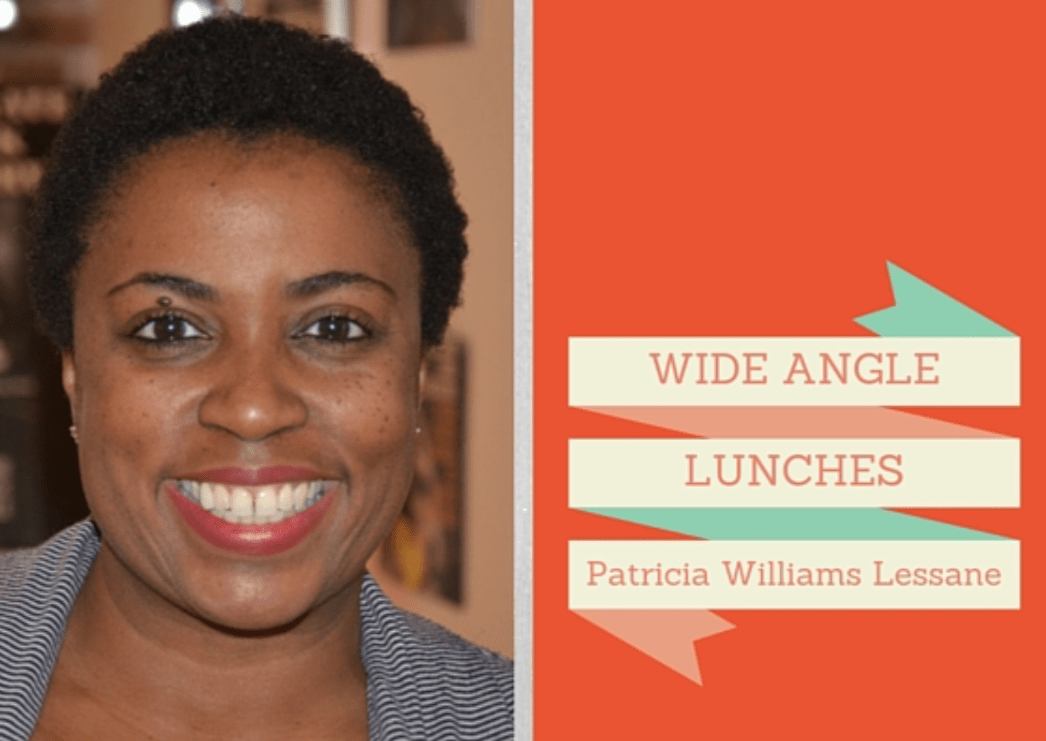
- This event has passed.
Wide Angle Lunch Series: Patricia Williams Lessane
October 15, 2015 @ 12:30 pm - 1:30 pm

For tickets, please call (843) 723-9912 or click here.
“We must … resist the comfortable fiction that, whatever racial turmoil exists elsewhere, genteel Charleston is a place of calm.”
So wrote Patricia Williams Lessane in the New York Times, just one day after the shooting of nine parishioners at Mother Emanual A.M.E. church in downtown Charleston. Dr. Lessane is uniquely qualified to explore what it today means to be Black, both in Charleston and across the nation. A native Chicagoan whose parents, like many African-Americans, migrated to the north in the 1950s in search of opportunity and a better life, Dr. Lessane returned to the south in 2010—also in search of a better life for her family. Offered the job of Executive Director of the Avery Research Center for African American History and Culture at the College of Charleston, Dr. Lessane, in her words, “jumped at the chance to leave the violence of Chicago’s South Side to forge a life in a safer, culturally rich community.” The events of the last year in Charleston, and in so many towns across the country, suggest that there may be no such thing for many African-Americans.
Dr. Lessane came to Charleston having studied and/or worked at a wide range of institutions, from Fisk University to the Field Museum, with stops at Dartmouth and Harvard in between. She was named one of Charlie Magazine’s 50 Most Progressive People in 2013 and, in addition to running the Avery Center, she is currently co-editing two volumes of work: We Carry These Memories Inside of We: Celebrating Daughters of the Dust and the Blacks Arts Aesthetic of Julie Dash and Dreams Deferred, Promises and Struggles; Perceptions and Interrogations of Empire, Nation, and Society. She lives in Charleston with her two beautiful and precocious children.
